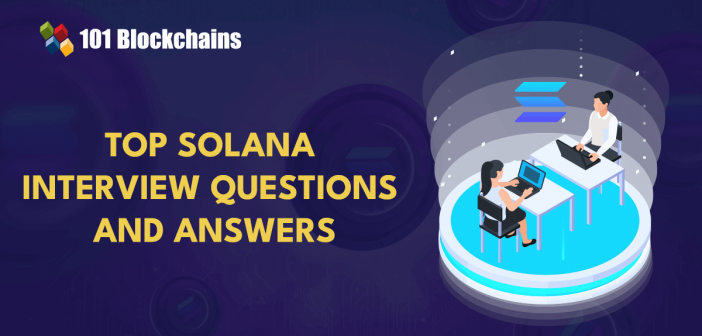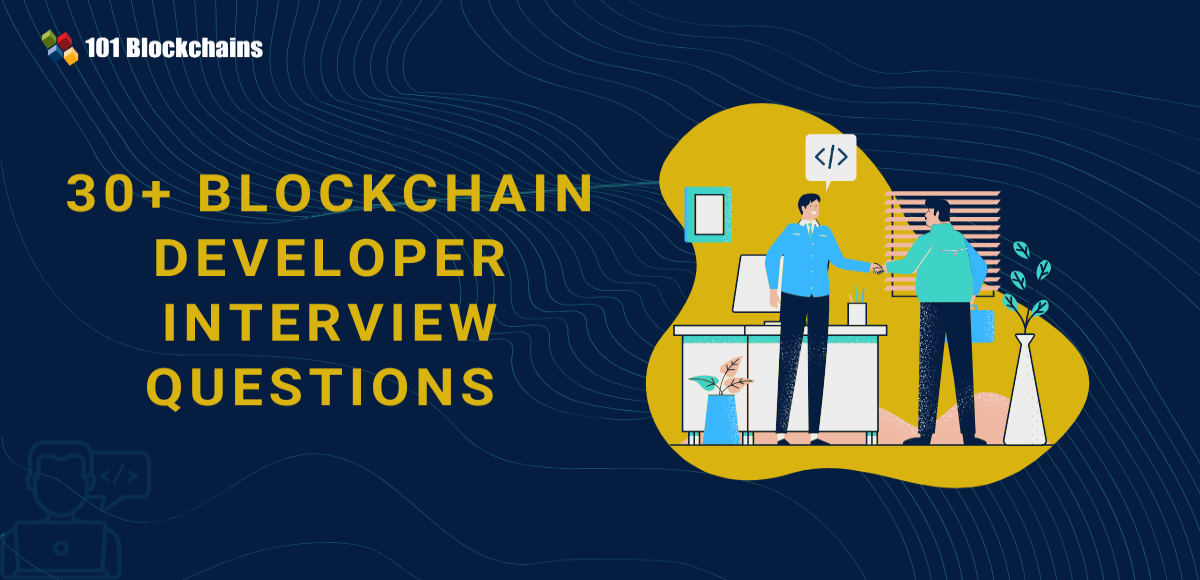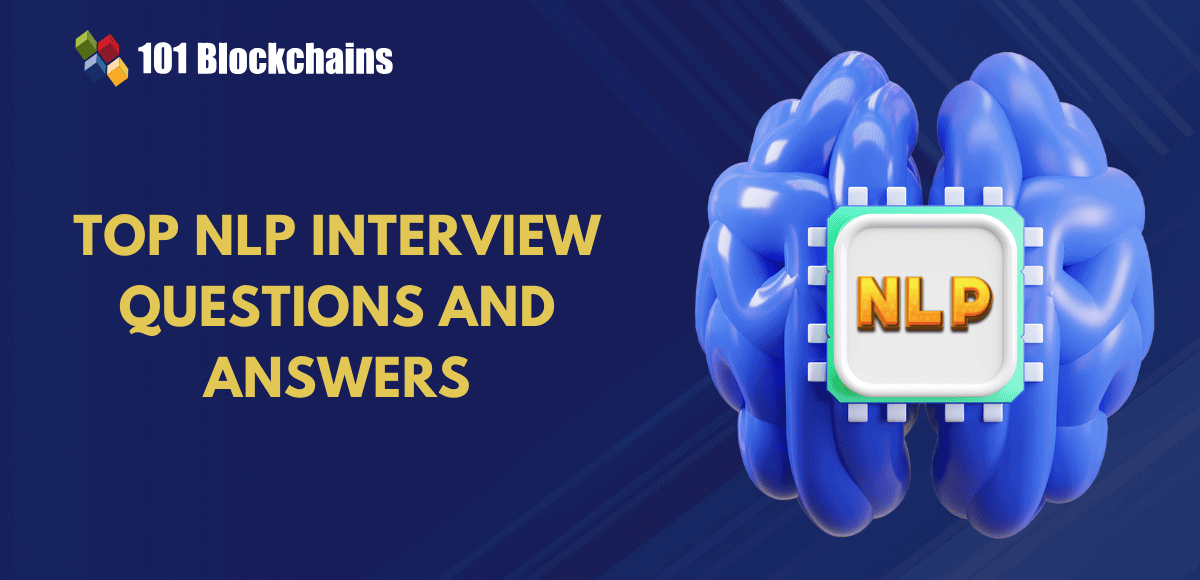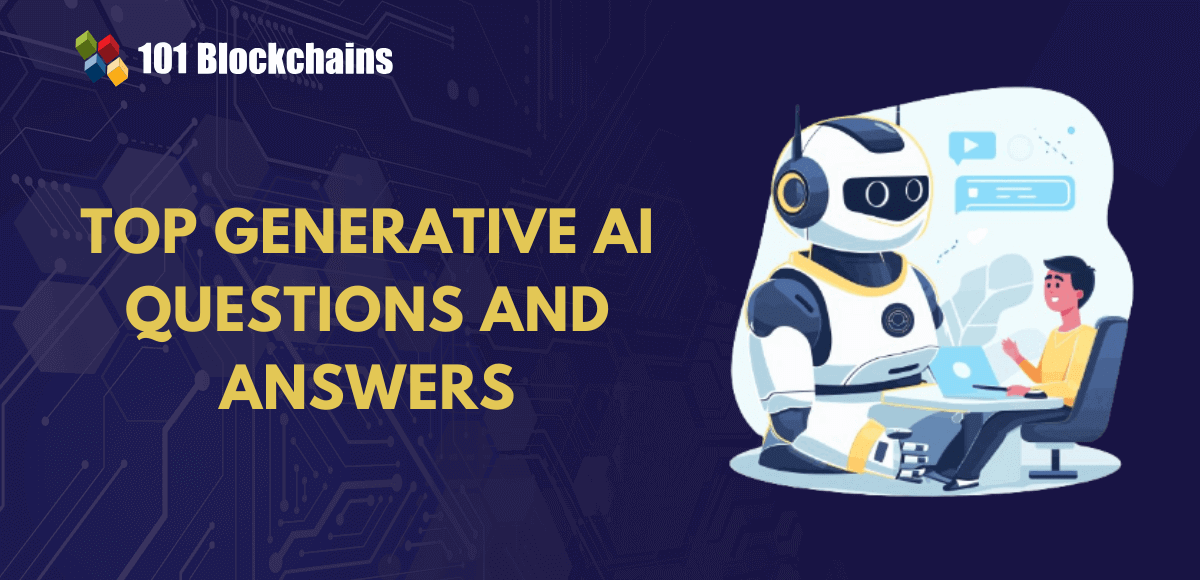Learn how blockchain truly works, master key definitions, and uncover what makes smart contracts so "smart." Dive into the fundamentals, gain valuable insights, and start your blockchain journey today!

- Interview Preparation
Georgia Weston
- on January 31, 2024
Top 20 Solana Interview Questions And Answers
Solana is a major component in the web3 landscape right now, with the advantage of better scalability than existing blockchains. It started off as an innovative project in 2017, and by 2021, Solana will have emerged as a major challenger to Ethereum. Solana is a multi-layered blockchain with its native token SOL and offers the same features as Ethereum.
It helps developers create decentralized apps like Ethereum, thereby providing an ideal foundation for creating DeFi solutions and NFTs. You must learn about the top Solana interview questions to prepare for a career as a Solana experts. The market capitalization of Solana increased by almost 400% in the summer of 2021, and it became one of the biggest blockchain networks.
The capability of Solana to empower the creation of NFTs and DeFi solutions, which are gaining demand, is a major reason for adopting Solana. It has led to an increase in demand for Solana developers and other web3 roles. The average annual salary of a Solana developer starts from $115,000. However, preparation for the best Solana interview questions can offer significant advantages for professional development as a Solana expert. Let us take a look at the top interview questions about the Solana blockchain that can help you build a career as a Solana experts.
Build your identity as a certified blockchain expert with 101 Blockchains’ Blockchain Certifications designed to provide enhanced career prospects.
Most Important Interview Questions about Solana
The interest of learners in Solana interview questions and answers has been growing as they seek effective routes for professional development. You may assume that interviews for Solana job roles would be all about a few fundamental questions. However, you could find different types of interview questions with varying complexities that would test your knowledge of Solana on different levels. Let us find the top interview questions for Solana professionals in different categories and the ideal answers to them.
Basic Interview Questions for Jobs in Solana
The first set of Solana interview questions draws attention to the basic concepts. You can come across different lists of top twenty interview questions about Solana that focus only on its fundamentals. Here are some of the basic questions about Solana that you can come across in an interview.
1. How is Solana different from other blockchain platforms?
Solana is a decentralized blockchain platform tailored for high performance to build scalable and fast applications. The most popular Solana interview questions would focus on the distinctive advantages of Solana blockchain. It is different from other blockchain platforms due to the unique consensus mechanism that combines Proof of Stake and Proof of History. The combination plays a crucial role in ensuring faster transaction processing alongside lower transaction fees as compared to other blockchain networks.
2. What is the Proof of History concept?
The next important addition to a Solana interview questions list is Proof of History, the unique consensus mechanism of Solana. It is a type of cryptographic clock that documents the timestamps of events in the Solana network. Proof of History offers a historical record of actions, which can help in ordering transactions alongside ensuring integrity of blockchain networks. Solana blockchain uses Proof of History in combination with Proof of Stake consensus to improve speed of transactions and scalability.
3. What are Solana Programs?
Solana Programs are the alternative name for smart contracts on the Solana network. The programs are a notable topic in top Solana interview questions for testing your fundamental knowledge about Solana network. Solana Program serves as an application or smart contract running on the Solana blockchain. The programs can be scripted by using programming languages such as Rust to perform different types of tasks. Solana Programs can help create apps and manage different transactions.
4. What are Lamports in Solana?
Lamports are one of the core aspects of the working of Solana as they serve as a unit of account on the network. They help in measuring the cost of storage and computational resources on the network. Smart contract interactions and transactions on Solana network use Lamports, and it is important to understand the units for determining the transaction costs.
5. What is the significance of validators in Solana network?
The best Solana interview questions also draw attention to the significance of validators in the Solana network. Validators are the nodes in Solana network that work on validation of transactions and creation of new blocks. They are also responsible for participating in the consensus process through staking Solana tokens in the form of collateral. The validators also receive incentives for acting positively to maintain network security.
6. What is the importance of Solana ecosystem?
The Solana ecosystem includes different projects such as dApps, NFT collections, and tools tailored to the Solana blockchain. Every list of Solana interview questions and answers focuses on how the Solana ecosystem showcases the capabilities of Solana network. It can help developers and users with easy access to different services and applications.
Enroll now in the Solana Development Course to understand the workings of the Anchor framework, Solana Program Library, and Solana tokens.
7. Does Solana help in improving scalability?
The interview questions on Solana also draw attention to Solana’s ability to improve scalability. Solana uses different features for offering scalability, including the unique consensus mechanism with the combination of Proof of History and Proof of Stake consensus. You can also answer such Solana interview questions by using techniques like parallel processing and sharding. The features help Solana in managing a large number of transactions per second with low latency.
8. What do you know about block finality in Solana?
Block finality is one of the essential concepts that define the functionalities of Solana blockchain. It denotes the time at which a block is considered completely irreversible. Solana can achieve faster block finality within a few seconds, thereby implying that transactions become immediately immutable on Solana blockchain.
9. How do clusters contribute to the architecture of Solana?
Clusters are also an important highlight in the most popular Solana interview questions about the basic concepts. Clusters are the smaller subsets of nodes that work in independent processing of transactions. The primary role of the smaller subsets is the distribution of the network’s load and contributing to decentralization by enabling more validators to participate in the network without compromises in performance.
10. What are the benefits and limitations of Solana?
You should also prepare for questions about the advantages and setbacks of Solana as compared to Ethereum blockchain. Any Solana interview questions list would be incomplete without references to Solana’s advantages and limitations. Solana offers prominent benefits, such as low transaction fees, higher throughput, scalability, and faster block finality. On the other hand, it is new to the blockchain landscape and has a smaller developer community.
Start learning blockchain with world’s first Blockchain Skill Paths with quality resources tailored by industry experts!
Advanced Interview Questions on Solana
The list of interview questions on Solana would also include advanced questions that test your knowledge of the technical concepts. Here are some of the top additions among advanced interview questions related to Solana blockchain.
11. What is token bridging in the Solana blockchain?
Token bridging is another concept covered in top Solana interview questions for testing your technical knowledge of Solana blockchain. It helps in transferring assets from other blockchains, such as Ethereum, to Solana blockchain and effectively using them. Token bridging is important for offering the benefits of interoperability alongside expanding the collection of assets within the Solana ecosystem. The benefits of token bridging can help ensure cross-chain transactions that support decentralized finance applications.
12. How is the Solana Token Registry important for the Solana ecosystem?
The Solana Token Registry offers a decentralized list of Solana Program Library token addresses. It helps in discovering and interacting with different tokens on Solana blockchain. The importance of Solana Token Registry ensures easier access to different assets alongside applications in the Solana ecosystem.
13. Does sharding improve scalability of Solana network?
Sharding is also one of the notable terms in the best Solana interview questions for technical interviews. The process of sharding involves division of Solana network into different shards or clusters. Each shard or cluster has its own set of decentralized storage systems and validators. Sharding can help in parallel processing of transactions on Solana network and improves scalability through reduction of congestion on the single blockchain.
14. What is the significance of Solana Development Kit?
The importance of Solana Development Kit or SDK in the Solana ecosystem also emerges as a notable question in Solana interviews. You can answer such Solana interview questions by reflecting on the use of SDL for creating dApps and smart contracts. SDK offers different libraries and tools for simplifying dApp and smart contract development on Solana network. It also includes programming languages such as Rust and could offer documentation alongside the necessary resources for developers.
Curious to understand the complete smart contract development lifecycle? Enroll now in the Smart Contracts Development Course
15. How can Solana ensure cross-chain interoperability?
Solana utilizes brides and wrapped tokens to offer cross-chain interoperability. It can help in transferring assets from other blockchain networks to Solana. Cross-chain interoperability plays a major role in expansion of the utility of blockchain networks. On top of it, cross-chain interoperability also allows seamless movement of assets between different blockchain networks.
16. Do you know anything about Solana Serum?
Serum is a notable mention in most popular Solana interview questions because it is a crucial part of the Solana ecosystem. Solana Serum is a decentralized exchange on the Solana network and offers the advantages of low transaction fees alongside high-speed trading. Serum also provides access to a broad collection of digital assets and makes Solana a suitable choice for DeFi applications.
17. What are SPL tokens in Solana?
The SPL or Solana Program Library tokens are important standards for creation and management of tokens on Solana blockchain. The standards offer compatibility and consistency for different types of tokens. SPL tokens can help developers in creating fungible and non-fungible tokens with limited difficulty.
18. How is leader rotation relevant for Solana?
Leader rotation is an important process in the Solana ecosystem, and it plays a crucial role in ensuring decentralization and network security. The process involves validators taking turns proposing new blocks and ensuring verification of transactions. It can help in improving decentralization and network security by preventing a group of validators or a single validator from gaining complete control over the process of creating blocks.
19. How can Solana resolve the challenges of front-running attacks?
The outline of Solana interview questions and answers also focuses on Solana’s capabilities for ensuring safeguards against front-running attacks. Solana blockchain utilizes faster confirmation times alongside the order book structure of Serum for resolving concerns due to front-running attacks. The faster block finality reduces the possibility of malicious actors gaining profits by rearranging the order of transactions.
20. What is the importance of Solana Community Fund?
The Solana Community Fund is an important component among interview questions for Solana jobs. It is a grant program that offers financial support to developers and projects that are being developed on Solana network. The importance of Solana Community Fund is the ability to encourage innovation and growth in the Solana ecosystem. The fund can boost innovation by offering funding opportunities and necessary resources for development.
The list of top twenty Solana interview questions would not be enough to prepare for jobs as blockchain professionals. You can find many other questions about other aspects of Solana blockchain. On the other hand, Solana blockchain is gradually gaining demand, and you can expect different types of interview questions.
Start learning blockchain with world’s first Blockchain Career Paths with quality resources tailored by industry experts now!
Final Words
The outline of interview questions about Solana blockchain includes questions with different levels of difficulty. You can use Solana interview questions and answers to improve your knowledge of Solana network and prepare for interviews. Prior awareness about interview questions and answers could also help you showcase your expertise in interviews with confidence. Solana has been gaining momentum as a major player in the web3 landscape.
It offers flexible development of web3 solutions, such as NFTs and DeFi apps. On top of it, the Solana ecosystem includes different libraries and tools for helping developers. Solana can offer promising value advantages such as faster transaction finality, better throughput, and cross-chain interoperability. Learn more about Solana fundamentals and how it can contribute to the growth of web3 now.
*Disclaimer: The article should not be taken as, and is not intended to provide any investment advice. Claims made in this article do not constitute investment advice and should not be taken as such. 101 Blockchains shall not be responsible for any loss sustained by any person who relies on this article. Do your own research!






